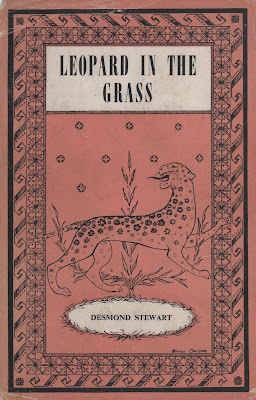 |
| London : Euphorion, 1951 |
John Stirling, a young British archaeologist has arrived in Cyropolis with the intention of working for the local government on archaeological digs. The locals however, think of an archaeologist as the thinnest euphemism for British agent.
John meets Sophie Abbas, a Jewish divorcée returning home from the United States and they quickly fall into a sexual relationship. While Sophie is looking for a relationship, John seems to enjoy the sex for what it is but isn't interested in attachment. Instead, he often thinks of the relationships he had with other boys during his school days.
Owing to Britain's former colonization of the area, British citizens living in Cyropolis continue to hang together within their own enclave and within their own clubs. It becomes clear to John that he is expected to follow along.
When John finds himself in the middle of a political demonstration on the streets of Cyropolis, he is rescued by a young local and brought to his employer's car. John becomes friends with Q, the gay British artist who saved him. Q hasn't joined with the others in their clubs and has been ostracized because they believe he has 'gone native.' To be clear, it isn't the fact that Q is gay that is a problem for the other British citizens, for there are others who are as well, but it's his embrace of the local culture that seems to be the issue.
When Nimr, a Bedouin man who Q took in as a child (and seems to have had a sexual relationship with), returns after having been dismissed by Q in favor of a younger choice, Q, Sophie, and John find themselves in the middle of a drama that is both personal and illuminates the terrible consequences of colonialism.
Bibliographies & Ratings: Cory (III); Garde (OTP, a**); Mattachine Review (III); Young (3645)
Bibliographies & Ratings II: Gunn (British 45a)
No comments:
Post a Comment